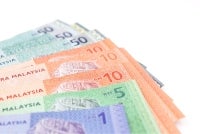Think public Wi-Fi is secure? Think again
Many people just click ‘allow’ without realising they are granting access to scan everything on their phones
KOUSALYA SELVAM HANI SHAMIRA SHAHRUDIN
SHAH ALAM - Public Wi-Fi might be a convenient way to stay connected, but it can also be a gateway for scammers to access your personal information, warns police.
Sepang district police Commercial Crime Investigation Department head Assistant Superintendent Muhammad Mahesh Kumar Risya Abdullah shared alarming insights into how unsuspecting users fall victim to scams and data theft simply by connecting to public or hotel Wi-Fi.
"When you check into a hotel, what’s the first thing you ask for? It’s Wi-Fi. Whether for work, family or leisure, we all want to be connected. But do we ever think twice about the security risks?" he questioned.
Mahesh said the ease of accessing free Wi-Fi often blinds users to the potential dangers.
"Connecting to hotel Wi-Fi or any public network often requires you to give permissions. Many people just click ‘allow’ without realising they are granting access to scan everything on their phones," he noted.
This seemingly harmless action could lead to devastating consequences. He cited daily police reports of unsuspecting victims losing significant sums of money.
“Every day, we receive reports of individuals suddenly finding RM5,000 or more missing from their accounts. Most don’t know how it happened, but we do. It’s often linked to unsafe internet practices like connecting to unsecured wi-fi or clicking on suspicious links," he said.
Mahesh also highlighted another common mistake: clicking on unfamiliar links.
“Many scams begin with a link, be it on social media, emails or messages. People don’t think twice before clicking and that’s all it takes to compromise their data," he said.
He also cautioned against using public charging stations, a lesser-known but equally dangerous risk.
'When you plug into public USB ports, you’re not just charging your phone. These ports can potentially transfer malware or extract your data," he revealed.
Steps to stay safe
To protect yourself, Mahesh offered the following advice:
1. Avoid public Wi-Fi: Use personal data or a secure, private network instead.
2. Be selective with permissions: If you must connect to public Wi-Fi, avoid granting access to personal data or sensitive files.
3. Don’t click unverified links: Verify the source of any link before clicking, especially those that promise deals or request sensitive information.
4. Use a VPN: Virtual Private Networks can provide an additional layer of security by encrypting your online activities.
5. Avoid public USB charging ports: Carry a personal power bank or use your charger with a direct electrical outlet.
Cybercrimes such as data theft and phishing scams are growing concerns in Malaysia. As Mahesh emphasised, the cost of a single mistake can be far greater than imagined.
“It’s not just about losing money. Your personal information like bank details, contacts or even photos can be used for identity theft or worse," he warned.
Download Sinar Daily application.Click Here!














